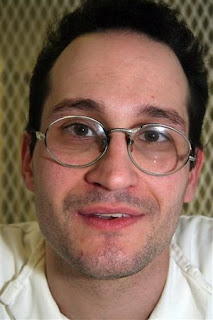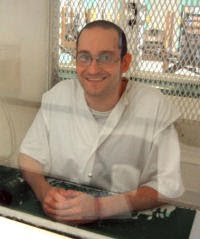The Texas Forensic Science Commission met today in Irving. The meeting took all day, but the time spent discussing the case of Todd Willingham amounted to about 5-8 minutes or so. One commission member said they were just at the beginning of the investigation. One member wanted to look at the Willingham trial transcript, get a report from the Corsicana fire department and take a look at what the Willingham’s wife has said, among other things, so that suggests they may take a broader look at the Willingham case instead of just focusing on the scientific validity of the forensic evidence. If the forensic evidence and the analysis of it had no basis in science, then there was no valid evidence of arson, which means there was no evidence of a crime and Texas executed an innocent person.
They expanded the subcommittee handling the investigation into the Willingham case and the case of Ernest Willis from three members to four. Chair John Bradley pointed out that if they put too many people on the subcommittee, then they would have to make the subcommittee members public. As it is, with so few members on the subcommittee, they can have secret, closed meetings.
In fact today’s meeting of the entire commission during the brief time they discussed the Willingham case was so agreeable between the commission members, that it appeared they may have hashed out any differences in the secret meeting they held last week of the then three-person panel of the subcommittee.
From the Austin American-Statesman:
Three commissioners had initially been tapped for the Willingham case: commission chairman John Bradley, who is the Williamson County District Attorney; Tarrant County Medical Examiner Dr. Nizam Peerwani; and Sarah Kerrigan of the forensic science program at Sam Houston State University.Kerrigan at first said she was “willing to stand down” from the subcommittee. Bradley said Kerrigan had told him that “personal issues” would prevent her from committing the time required for the subcommittee work. And he said that he wanted to add another lawyer to the panel because of the weighty legal issues involved — and also because, for public perception, it would be better to have both a prosecutor and a defense lawyer on the subcommittee.Bradley said he’d asked defense lawyer Lance Evans to join the subcommittee in Kerrigan’s place.Evans said he’d be happy to join the subcommittee, but he asked the commission to consider expanding it to include more commissioners — or the entire commission. He said it might be helpful to have people on the subcommittee who had been involved in the earlier investigation. Peerwani, Bradley and Evans are recent Perry appointees.“I think every member of this commission is vitally interested in this particular investigation,” Evans said.Bradley told the commission that if the subcommittee were enlarged to include the entire nine-member commission — or at least a quorum — the meetings would have to be public because of Texas’ open meeting requirements.But three — or four — members may meet behind closed doors.
Bradley meets the press. Asked about the pace of the Willingham case ahead, he says it will proceed as appropriate. Asked if he would set a timetable, he says no. He says that would be arbitrary.
Asked about the newly configured, four-person Willingham committee, he says it will meet in private. Why not public? “I don’t think it’s in the best interest of how we choose to do things.” Asked who decided the Willingham committees will meet privately, he says the committee did. (I should point out that the assistant AG attending today’s session advised the commission that the committee were only made official today and that they couldn’t have made official decisions at their organizing meetings last week.)Bradley cuts off questions before I could ask him particulars of what the committee will tackle at its next meeting.Talking with Commissioner Evans, the Fort Worth defense attorney, who says it was news to him that the committee will be meeting in private. Should it be? Evans says he would have no objection to public meetings, though he appreciates that there is a level of frankness that can help get things done behind closed doors. Overall, he says he’s willing to listen to pros and cons.Evans says he figures that committee members will be in contact to decide what materials to review and people to talk to for their next session — whenever that is.On his way out, Adams says it was news to him that committees will conduct business in private. He presumed they would be public. But don’t worry, he says, other members of the commission will make sure business is above-board.
Texas Moratorium Network plans to ask the public to write the commission and urge them to make all subcommittee meetings public and not to hold private, secret closed door meetings.















